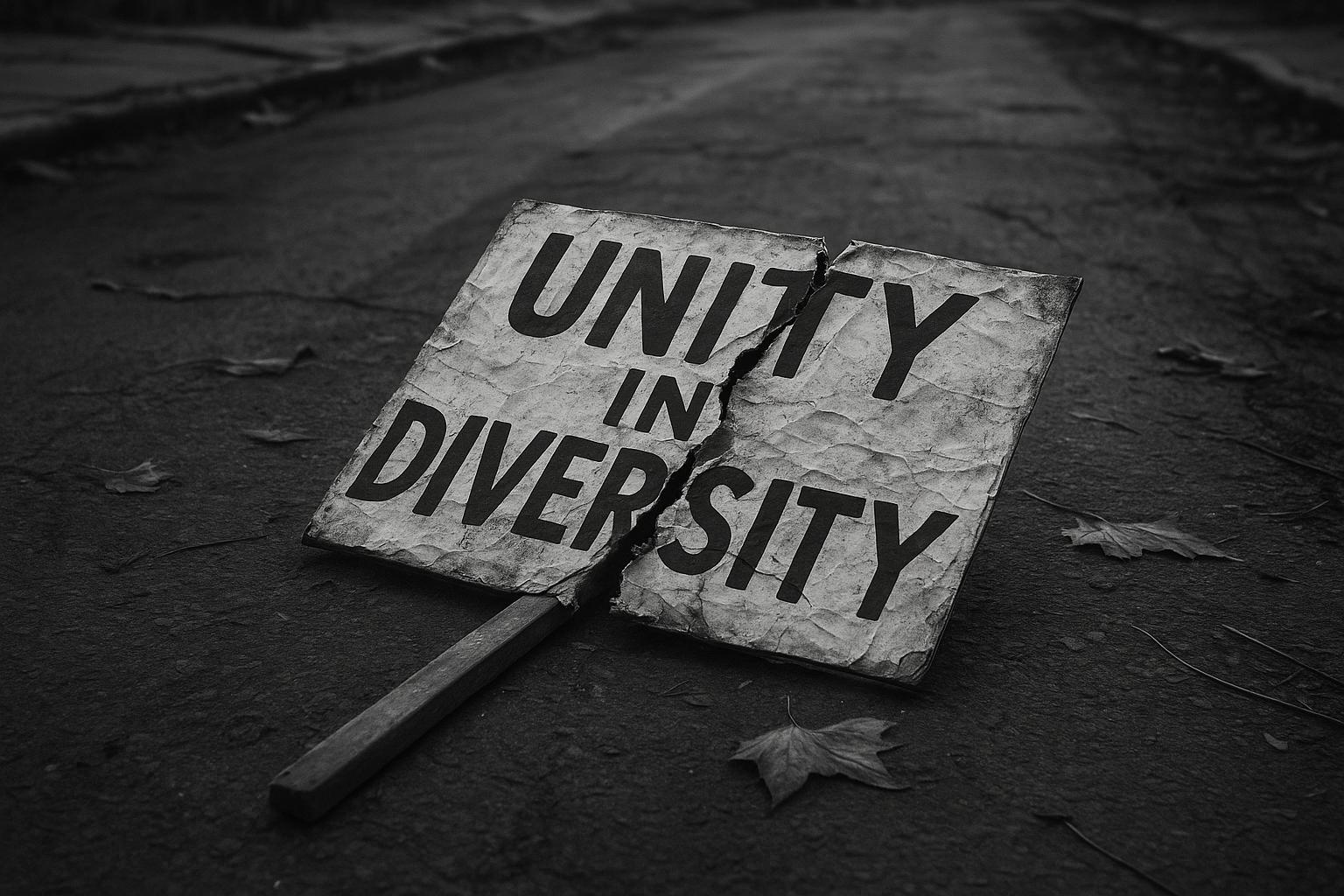Peter Kyle, the business and trade secretary, may dismiss the recent far-right march led by Tommy Robinson as inconsequential, yet many across the country see such events as a stark warning. It’s evident that the rise of divisive and extremist rhetoric—exploiting societal discontent—is a serious threat that cannot be ignored. The blatant displays of hate, threats, and violence witnessed during these rallies should serve as a wake-up call, not only to government ministers but to society at large. While organisations committed to combating such threats mobilise efforts at grassroots levels, it’s clear that incremental measures alone are insufficient. There must be a concerted push for transformative strategies that challenge the roots of division and root out the culture of intolerance.
Community leaders and civil society figures are increasingly calling for urgent dialogues aimed at bolstering social cohesion—yet under the current government’s watch, these efforts lack the necessary urgency and strategic backing. The message from those warning against the far right’s growing influence is clear: without decisive action, society risks normalising hatred and bigotry. Building resilient coalitions that can mobilise and coordinate responses across sectors—from local communities to national institutions—should be a priority, especially as the far right exploits societal divisions for gains that threaten social fabric and stability.
Eyewitness accounts from counter-protesters paint a troubling picture of the atmosphere at these rallies. Far from expressions of genuine concern over immigration or other policies, many attendees have exhibited a gleeful embrace of racism, with verbal abuse, Nazi salutes, and violent acts noted by witnesses. Such behaviour, tolerated or dismissed by a complacent authority, undermines any pretence of legitimate debate. The reality is that racist expressions are no longer hidden under a shadow of doubt—they are flaunted openly, emboldened by figures like Robinson who exploit public space to incite hatred. Society must reject these displays unequivocally, condemning them as an affront to decency and a threat to social harmony.
The scourge of racism extends beyond volatile rallies into daily life. Accounts of racial abuse—whether directed at children in schools or communities—highlight how entrenched and normalized these prejudices have become. As public figures and leaders turn a blind eye or fail to speak out forcefully against such injustice, society’s moral fabric frays further. There is an urgent need for leadership to confront these issues head-on, with a clear stance that bigotry and hate speech have no place in a fair and inclusive society. Only through unwavering leadership can the tide of intolerance be stemmed.
Addressing far-right extremism requires more than mere condemnation. It calls for rebuilding the community fabric that enables dialogue, understanding, and mutual respect. Yet opportunities for face-to-face interaction are diminishing—libraries closing, community centres shutting down, and social venues becoming scarce. This societal retreat into isolated spaces feeds the polarization seen at these rallies. Advocates argue that restoring accessible community hubs—churches, mosques, local halls—without prohibitive costs could foster dialogue, bridge divides, and undermine the false narratives spread by the far right. Such initiatives are crucial if society is to resist the normalization of hatred and ensure inclusive spaces where all can feel safe and heard.
Historical patterns of far-right activity reveal a disturbing trajectory of confrontation and chaos. From the July 2024 protests in London, which saw police deploy hundreds to contain violence, to earlier rallies orchestrated by Robinson—these events consistently showcase the potential for violence and societal destabilization. Robinson’s history of provocative activities and his participation in contentious demonstrations further diminish the legitimacy of his agenda. His involvement in anti-racism events has often been contentious; authorities have taken steps to prevent his disruptive influence from spilling into peaceful displays of community solidarity. Such measures are essential, as they send a clear message that hate-mongering and violent provocations have no place in democratic society.
Robinson’s rallies are less about political discourse and more about fomenting division, hatred, and chaos. The recent spikes in violence and confrontations with law enforcement underline the urgent need for robust strategies to prevent hate-driven actions from spiralling out of control. It’s crucial that authorities, community organizations, and civil society unite—not just to oppose these movements but to actively dismantle the conditions allowing them to flourish. This involves strengthening laws, supporting community policing, and investing in social projects that challenge the ideologies underpinning hate.
The collective response to these provocations must go beyond mere protest. Society needs palpable change—policies and initiatives designed to foster unity, promote inclusivity, and ensure that hate does not become embedded in public life. As the political landscape shifts with a newly formed government, there is an imperative for leadership to stand resolute against extremism and to champion policies that promote societal resilience. Only through such comprehensive efforts can we halt the normalization of hate and build a future rooted in respect, fairness, and genuine community cohesion.
Source: Noah Wire Services
